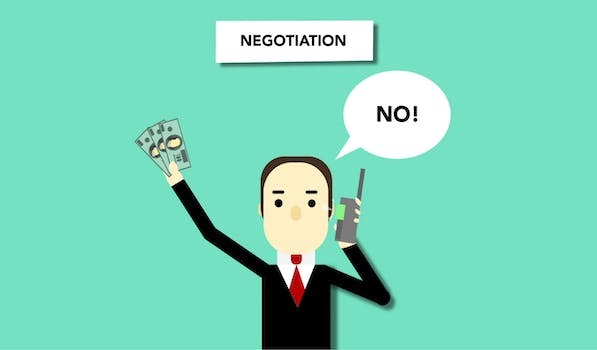How To Start A Business Podcast
“Unlock the power of your voice and share your business expertise with the world through podcasting.”
Introduction
Starting a business podcast can be a great way to share your expertise, connect with your audience, and build your brand. In this guide, we’ll cover the basics of how to start a business podcast, including choosing a topic, selecting equipment, recording and editing your episodes, and promoting your podcast to grow your audience. Whether you’re a seasoned entrepreneur or just starting out, a business podcast can be a valuable tool for sharing your knowledge and building your network. So let’s get started!
Choosing the Right Podcast Format
Starting a business podcast can be a great way to connect with your audience, share your expertise, and build your brand. But before you hit record, it’s important to choose the right podcast format. There are several different formats to choose from, each with its own benefits and drawbacks. In this article, we’ll explore some of the most popular podcast formats and help you decide which one is right for your business.
Interview Format
One of the most popular podcast formats is the interview format. In this format, you invite guests onto your show to share their expertise and insights. This can be a great way to provide value to your audience and build your network at the same time. However, it’s important to choose guests who are a good fit for your audience and who can provide valuable insights. You’ll also need to be a skilled interviewer to keep the conversation flowing and engage your listeners.
Solo Format
Another popular podcast format is the solo format. In this format, you record episodes by yourself, sharing your own insights and expertise. This can be a great option if you’re comfortable speaking on your own and have a lot of valuable information to share. However, it can be challenging to keep your listeners engaged without the back-and-forth of a conversation. To make this format work, you’ll need to be a skilled storyteller and have a clear structure for your episodes.
Panel Format
The panel format is another popular option for business podcasts. In this format, you invite a group of experts onto your show to discuss a specific topic. This can be a great way to provide a variety of perspectives and insights on a particular subject. However, it can be challenging to manage multiple voices and keep the conversation focused. To make this format work, you’ll need to be a skilled moderator and have a clear structure for your episodes.
Hybrid Format
Finally, you may want to consider a hybrid format for your business podcast. This format combines elements of the interview, solo, and panel formats to create a unique listening experience. For example, you might start each episode with a solo segment, then bring on a guest for an interview, and finish with a panel discussion. This can be a great way to keep your listeners engaged and provide a variety of perspectives on a particular topic. However, it can be challenging to manage multiple segments and keep the episode flowing smoothly.
Choosing the Right Format for Your Business Podcast
So, how do you choose the right podcast format for your business? Start by considering your goals and your audience. What type of content will provide the most value to your listeners? What format will help you achieve your business objectives? Once you have a clear understanding of your goals and your audience, you can start experimenting with different formats to see what works best.
It’s also important to consider your own strengths and weaknesses as a host. Are you a skilled interviewer? Do you enjoy speaking on your own? Are you comfortable managing multiple voices? Choose a format that plays to your strengths and allows you to provide the most value to your listeners.
Finally, don’t be afraid to experiment with different formats over time. As you gain experience and feedback from your listeners, you may find that your podcast evolves and changes. Embrace this evolution and continue to refine your format to provide the best possible listening experience for your audience.
In conclusion, choosing the right podcast format is an important step in starting a successful business podcast. Consider your goals, your audience, and your own strengths and weaknesses as a host. Experiment with different formats and be open to evolution over time. With the right format and a commitment to providing value to your listeners, your business podcast can be a powerful tool for building your brand and connecting with your audience.
Identifying Your Target Audience

Starting a business podcast can be a great way to connect with your audience and establish yourself as an expert in your industry. However, before you start recording, it’s important to identify your target audience. Knowing who you’re speaking to will help you create content that resonates with them and keeps them coming back for more.
The first step in identifying your target audience is to think about who your ideal customer is. What are their interests, pain points, and goals? What kind of information are they looking for? Once you have a clear picture of your ideal customer, you can start to tailor your content to their needs.
One way to get a better understanding of your target audience is to conduct market research. This can involve surveys, focus groups, or even just talking to your existing customers. Ask them what kind of content they would be interested in hearing, and what topics they would like to learn more about.
Another important factor to consider when identifying your target audience is their level of expertise. Are you speaking to beginners who are just starting out in your industry, or are you targeting more advanced professionals? This will affect the tone and level of detail in your content.
It’s also important to think about the format of your podcast. Will it be a solo show, or will you be interviewing guests? Will you be providing tips and advice, or will you be sharing stories and experiences? The format you choose should be based on what your target audience is looking for.
Once you have a clear understanding of your target audience, it’s time to start creating content. Make sure that each episode provides value to your listeners and addresses their needs and interests. You can also use your podcast to showcase your expertise and establish yourself as a thought leader in your industry.
When promoting your podcast, make sure to target your marketing efforts towards your ideal customer. This can involve using social media, email marketing, or even paid advertising. By reaching out to the right people, you can build a loyal following and grow your audience over time.
In conclusion, identifying your target audience is a crucial step in starting a successful business podcast. By understanding who you’re speaking to and what they’re looking for, you can create content that resonates with your listeners and keeps them coming back for more. So take the time to do your research, and start creating content that speaks directly to your ideal customer.
Creating Engaging Content
Starting a business podcast can be a great way to connect with your audience, build your brand, and establish yourself as an expert in your industry. However, creating engaging content that keeps your listeners coming back for more can be a challenge. In this article, we’ll explore some tips and strategies for creating compelling content for your business podcast.
First and foremost, it’s important to understand your audience. Who are they? What are their interests and pain points? What kind of content do they enjoy consuming? By understanding your audience, you can tailor your content to their needs and preferences, which will help keep them engaged and coming back for more.
One way to create engaging content is to tell stories. People love stories, and they’re a great way to connect with your audience on an emotional level. Whether you’re sharing your own personal experiences or interviewing guests who have interesting stories to tell, storytelling can be a powerful tool for engaging your listeners.
Another strategy for creating engaging content is to provide value. Your listeners are tuning in because they want to learn something new or gain insights into your industry. By providing valuable information, tips, and advice, you can establish yourself as an authority in your field and build trust with your audience.
One way to provide value is to interview experts in your industry. Not only will this provide your listeners with valuable insights and perspectives, but it can also help you build relationships with other thought leaders in your field. Additionally, interviewing guests can help keep your content fresh and varied, which can help keep your listeners engaged.
Another way to provide value is to share your own expertise. Whether you’re sharing tips and tricks for running a successful business or providing insights into the latest trends in your industry, sharing your own knowledge and experience can be a great way to provide value to your listeners.
Of course, creating engaging content is only part of the equation. You also need to make sure that your podcast is well-produced and easy to listen to. This means investing in quality equipment, such as a good microphone and recording software, and taking the time to edit your episodes to ensure that they sound professional.
It’s also important to promote your podcast to ensure that it reaches as many people as possible. This means leveraging social media, email marketing, and other channels to get the word out about your podcast. Additionally, you may want to consider partnering with other businesses or influencers in your industry to help promote your podcast and reach a wider audience.
In conclusion, creating engaging content for your business podcast is all about understanding your audience, providing value, and telling compelling stories. By following these tips and strategies, you can create a podcast that not only entertains and informs your listeners but also helps you build your brand and establish yourself as an expert in your field. So what are you waiting for? Start brainstorming ideas for your next episode and get ready to create some amazing content!
Equipment and Software Needed for Podcasting
Starting a business podcast can be a great way to connect with your audience and share valuable insights about your industry. However, before you start recording, you need to make sure you have the right equipment and software to produce a high-quality podcast. In this article, we’ll go over the essential equipment and software you need to get started.
First and foremost, you’ll need a microphone. A good microphone is essential for producing high-quality audio. There are many different types of microphones available, but a condenser microphone is a popular choice for podcasting. Condenser microphones are sensitive and can pick up a wide range of frequencies, making them ideal for capturing the nuances of speech. You can find a good condenser microphone for around $100.
Next, you’ll need a mixer or audio interface. A mixer or audio interface allows you to connect your microphone to your computer and adjust the levels of your audio. A mixer is a more advanced option that allows you to control multiple inputs, while an audio interface is a simpler option that connects directly to your computer. You can find a good audio interface for around $100.
Once you have your microphone and mixer or audio interface, you’ll need recording software. There are many different options available, but Audacity is a popular choice for podcasting. Audacity is a free, open-source program that allows you to record and edit audio. It’s easy to use and has many features that are specifically designed for podcasting.
In addition to recording software, you’ll also need a hosting platform for your podcast. A hosting platform is where your podcast will be stored and distributed to platforms like Apple Podcasts and Spotify. There are many different hosting platforms available, but some popular options include Buzzsprout, Libsyn, and Podbean. These platforms offer different features and pricing options, so it’s important to do your research and choose the one that’s right for you.
Finally, you’ll need headphones. Headphones are important for monitoring your audio while you’re recording and editing. They also help to block out external noise and ensure that you’re hearing your audio accurately. There are many different types of headphones available, but a good pair of over-ear headphones is a popular choice for podcasting. You can find a good pair of headphones for around $50.
In addition to these essential items, there are a few other things you may want to consider. A pop filter can help to reduce plosives (the popping sound that occurs when you say words with “p” or “b” sounds) and improve the clarity of your audio. A microphone stand can help to keep your microphone in place and reduce handling noise. And a soundproofing kit can help to reduce external noise and improve the acoustics of your recording space.
In conclusion, starting a business podcast requires some essential equipment and software. You’ll need a microphone, mixer or audio interface, recording software, a hosting platform, and headphones. Additionally, you may want to consider a pop filter, microphone stand, and soundproofing kit. With these tools in hand, you’ll be well on your way to producing a high-quality podcast that engages and informs your audience.
Promoting and Marketing Your Podcast
Once you have created your business podcast, the next step is to promote and market it to your target audience. This is a crucial step in ensuring that your podcast reaches as many people as possible and gains a loyal following. Here are some tips on how to promote and market your business podcast.
1. Leverage Social Media
Social media is a powerful tool for promoting your podcast. You can use platforms like Twitter, Facebook, and LinkedIn to share your podcast episodes and engage with your audience. Create social media accounts specifically for your podcast and use them to share behind-the-scenes content, teasers, and episode highlights. You can also use social media to interact with your listeners and get feedback on your podcast.
2. Collaborate with Other Podcasters
Collaborating with other podcasters in your niche can help you reach a wider audience. You can guest on other podcasts or invite other podcasters to be guests on your show. This can help you tap into their audience and gain new listeners. You can also cross-promote each other’s podcasts on social media and other platforms.
3. Use Email Marketing
Email marketing is a great way to promote your podcast to your existing audience. You can create a newsletter specifically for your podcast and send it out to your email list. Include links to your latest episodes, behind-the-scenes content, and other relevant information. You can also use email marketing to promote special events or promotions related to your podcast.
4. Attend Events and Conferences
Attending events and conferences in your niche can help you connect with potential listeners and promote your podcast. You can set up a booth or table at these events and hand out flyers or other promotional materials. You can also network with other attendees and speakers and promote your podcast in person.
5. Optimize Your Podcast for SEO
Search engine optimization (SEO) can help your podcast rank higher in search engine results and attract more listeners. You can optimize your podcast by using relevant keywords in your episode titles and descriptions. You can also include transcripts of your episodes on your website to make them more searchable.
6. Advertise Your Podcast
Advertising your podcast can help you reach a wider audience and attract new listeners. You can use platforms like Google Ads or Facebook Ads to create targeted ads for your podcast. You can also advertise on other podcasts or websites in your niche.
7. Engage with Your Audience
Engaging with your audience is key to building a loyal following for your podcast. You can use social media, email, or other platforms to interact with your listeners and get feedback on your podcast. You can also create a community around your podcast by setting up a Facebook group or forum where listeners can connect with each other.
In conclusion, promoting and marketing your business podcast is crucial to its success. By leveraging social media, collaborating with other podcasters, using email marketing, attending events and conferences, optimizing for SEO, advertising, and engaging with your audience, you can reach a wider audience and build a loyal following for your podcast.
Conclusion
Conclusion: Starting a business podcast can be a great way to share your expertise, build your brand, and connect with your audience. To get started, you’ll need to choose a topic, format, and platform, invest in quality equipment, and promote your podcast through social media and other channels. With dedication and hard work, you can create a successful podcast that helps you achieve your business goals.






